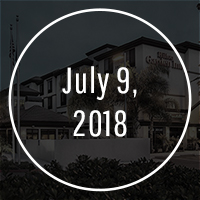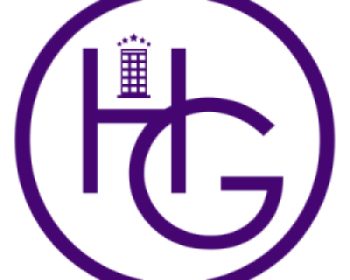Trends in the U.S. Lodging Industry
2011Q3 Update By Robert A. Rauch, CHA
“We continue to experience the “hangover” from the great recession of 2008. It looked like things were turning around in May but June and July have been soft enough to keep a watchful eye out for a possible yet unlikely “double-dip” recession”
Forecast Update U.S. and San Diego
The Global Business Travel Association Foundation study claims business travel will be up 9.2 percent this year. They claim that by 2013, peak 2008 levels will have returned. A TravelClick study, also looking forward, is indicating that global distribution system bookings are up and in fact, were up 15 percent year over year on the day Standard & Poor’s downgraded the U.S. credit rating. The advantage to their information is that it is based on actual booked rooms over the next 12 months.
In 2010, according to Smith Travel Research, supply was up two percent while demand increased almost eight percent bringing occupancy levels to 57.6 percent. Average rate (ADR) was flat at $98. Through Q2, 2011, occupancy was up 4.5 percent and ADR was up 3.5 percent and we project, despite the uncertainty in the market like high unemployment, slowing global growth, shaky consumer confidence and more, that we will finish the year at just under 60% at close to $102.
As for the economy in San Diego, the Burnham-Moores Center for Real Estate at the University of San Diego reported that leading economic indicators were up sharply in San Diego through May. This pattern softened quite a bit in June where the Leading Economic Indicators experienced the first drop in two years and July was virtually flat at +.2 percent. Notwithstanding this, occupancy levels should hit 69 percent by year end, up from 66.7 percent last year and $127, up from $122 last year. The booking pace, according to TravelClick is up in both the group and individual segments.
Revenue Management
Revenue Management (RM) has gone from being an art when it was first introduced by the airline industry in the 1970s to being a complex science today. RM is the set of techniques which collectively determine which reservation requests to accept and which to reject to optimize revenue. The principles of revenue management had their origin in the airline industry, but the concepts are equally applicable to hotels. A revenue management system optimizes revenue and profit by controlling reservation inventory in two ways – discount allocation and duration controls.
Managers have always lowered prices to stimulate sales when demand is weak and have raised prices during peak demand periods. Today, the frequency of these pricing decisions is dramatically different. Some hotel companies have revenue management meetings daily, others weekly. Advances in technology can support immediate measurement of competitive market forces. It is now possible to update prices for all future arrival dates to match market demands each day.
Business intelligence (market data) is one of the most critical applications for revenue management. Better decisions can be made on daily pricing tactics when we have aggregated meaningful data that includes both historic and future travel patterns, length and dates of stay and booking channels combined with key external information, such as competitive and market performance. With the right business intelligence applications, we have the ability to “slice and dice” information to yield flexible, ad-hoc reports as conditions change. This is particularly important when it comes to shifting market mix to optimize revenues.
Mobile channel booking has increased four-fold between 2008 and 2010 according to Forrester Research and Google is projecting that mobile will overtake PCs as the most common web-access device by 2013! This, coupled with social media represents a good portion of the major shift in revenue management from art to science. RM allows one to project revenues and provides for a set of actions that form a foundation for a successful business plan. This then becomes the key ingredient in the budget process for 2012. Without an accurate business plan and budget, a hotel is not likely to be successful.
Other Key Trends
The Lodging Industry Investment Council claims that the hotel investment market will peak in 2015 and that lodging real estate values are going to continue to improve. We have already seen lodging transaction volume increase markedly. Acquisition debt is back and occupancy and rates will continue to grow. Speaking of debt, the jobs act increased the limit on Small Business Administration loans from $2-5 million. There are some programs that were part of the Economic Stimulus Plan that expire this year, so talk to your lender/advisor soon if you are going to be looking for debt in 2011.
We expect distressed asset transactions to continue as overleveraged properties reach loan maturity dates and owners are unable to come up with the expected equity requirements. The market appears to be getting more competitive for hotel buyers in the U.S. Many public companies target an internal rate of return north of 10 percent, but many of the REIT acquisitions have been well below that, particularly a few in San Diego.
Another trend that has taken hold is social media mania. Get on board if you are not yet busy with Facebook, Twitter, LinkedIn and the maze of social media opportunities, but have a plan. While social media is not a panacea and does not yet close deals, travelers clearly rely on the information to help them choose a hotel. Moreover, we are entering a period of time where “reputation management” is also becoming a science. This field is growing as technology companies work to differentiate themselves. The leader in hospitality reputation management is Travel Media Group. This group provides reports that help manage all reviews about the hotel and have a system that helps to create more good reviews. Hence, we are now utilizing their system at our independent hotels.
If we can be of assistance to you in evaluating a market, asset managing or managing a hotel or providing comprehensive consulting and advisory services, call us. We believe that Q4 of 2011 will continue to be a transition quarter in a transition year, one that provides for more opportunity than future years…let’s not let it get away! When we look back, this period will have been the best opportunity in the decade to make sizeable gains in lodging investments.
Robert A. Rauch, CHA






